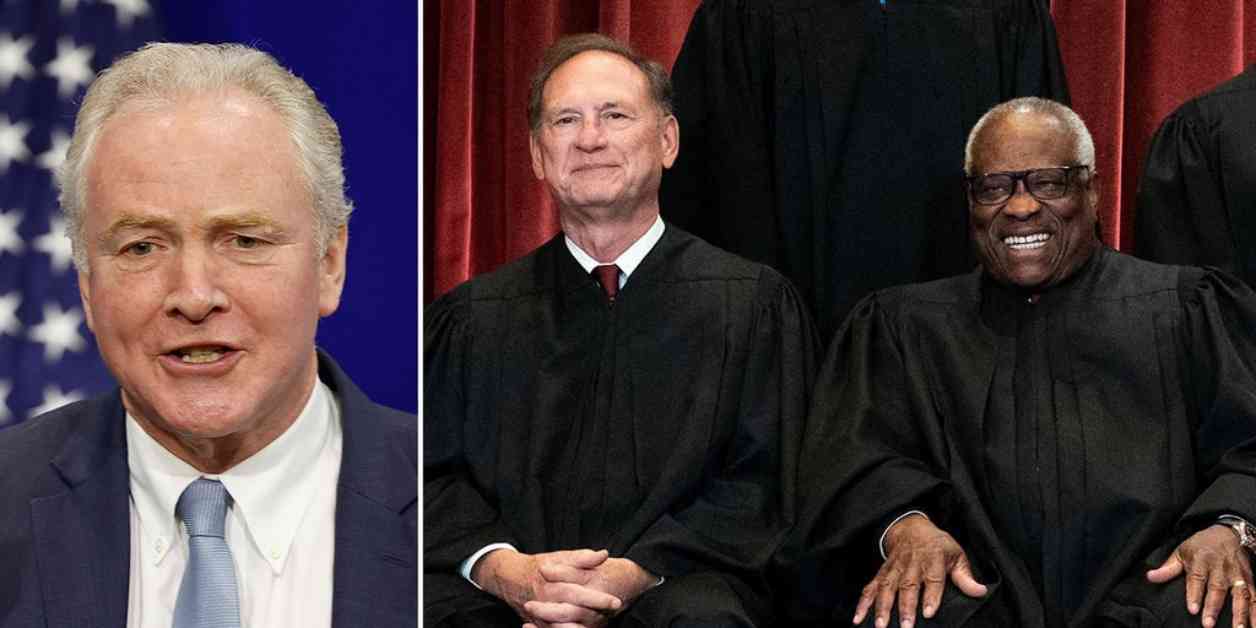A proposal put forth by a top Senate appropriator aims to link operational funding for the Supreme Court to the enforcement of an ethics code in light of recent controversies surrounding Justices Clarence Thomas and Samuel Alito. The plan involves fencing off funding for the Supreme Court in the fiscal year 2025 spending bill and making it contingent on the court implementing an enforceable code of ethics. This move comes following concerns raised over the political behavior of the justices’ spouses and gifts received from wealthy associates.
Senator Chris Van Hollen, D-Md., who chairs the Appropriations Subcommittee on Financial Services and General Government, is spearheading this effort to ensure that the Supreme Court upholds ethical standards similar to those required of lower courts. Van Hollen had previously proposed similar measures and is now revisiting the idea in light of renewed scrutiny on the conduct of the court and its justices.
Last year, reports surfaced detailing Justice Thomas’ relationship with a billionaire real estate tycoon and the extravagant gifts he had received. Additionally, Justice Alito faced criticism after flags with controversial connotations were flown at his residence, sparking further calls for an enforceable code of ethics for Supreme Court justices.
Democratic lawmakers have been vocal in their demands for justices to recuse themselves from cases related to the 2020 election, citing concerns about impartiality. Despite these calls, neither Thomas nor Alito recused themselves from a recent case involving former President Trump’s immunity, which resulted in a 6-3 decision in favor of Trump.
Senator Richard Blumenthal, D-Conn., has been advocating for the inclusion of the Supreme Court Ethics, Recusal, and Transparency Act in the annual appropriations bill to compel the court to adopt a robust code of ethics. While Majority Leader Chuck Schumer has the authority to bring the bill to a vote, it has yet to be scheduled for consideration.
Senator Sheldon Whitehouse, D-R.I., has been pushing for the passage of the ethics bill, emphasizing the need for a credible and respected Supreme Court that instills confidence across party lines. However, some senators, like Peter Welch, D-Vt., prefer a standalone approach to address Supreme Court ethics, highlighting the importance of maintaining the court’s integrity and credibility.
In conclusion, the proposal to tie Supreme Court funding to the enforcement of an ethics code reflects ongoing efforts to uphold ethical standards within the judiciary and ensure the integrity of the nation’s highest court. As discussions around this issue continue, lawmakers are faced with the challenge of balancing judicial independence with accountability and transparency to maintain public trust in the judicial system.





















